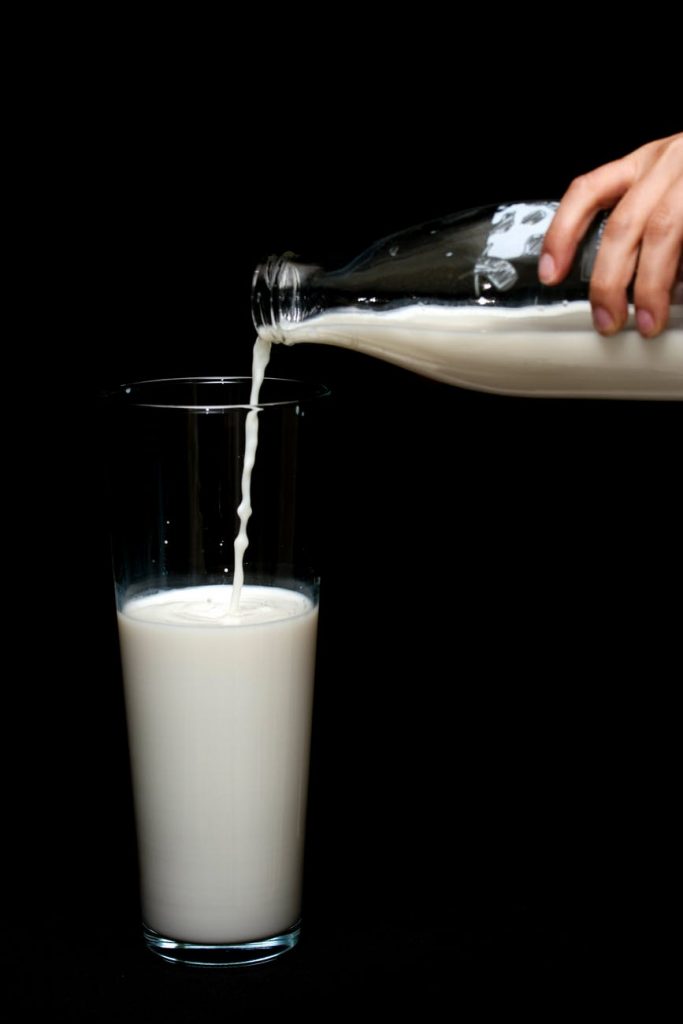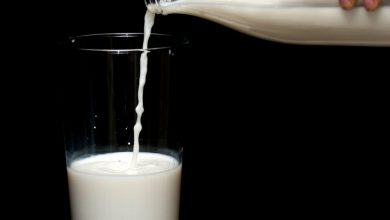
A Mineral & Vitamin Deficiency Can Make You Gain Weight: Here’s Why
The reasons for weight gain are manifold. While the most common reasons are junk food eating and lack of proper exercise, there could be hidden reasons behind why you are more prone to eating low nutritional value food and why you feel too lazy to exercise.
Sometimes, trying to figure out why you have been gaining weight can get tricky and frustrating. When you do not know what is making you gain weight, you have no idea which target problems to tackle, and it can get tough to try and control it as well. If you have been gaining weight for unexplainable reasons, a mineral and vitamin deficiency could be the reason.
Vitamins, minerals, micronutrients, and hormonal changes affect the metabolism of your body, and keeping your metabolism under check is the key to being able to keep unintended weight gain at bay. Even though a vitamin and mineral deficiency alone is sometimes not the sole reason for your weight gain, it can be a heavy contributing factor, and it can accelerate your weight management if you target this problem. Before we get into how a mineral and vitamin deficiency can make you gain weight, let us look at what minerals and vitamins are and what a mineral and vitamin deficiency is.

What are Minerals?
Minerals or nutrient minerals are essential chemical elements required by human beings to perform necessary bodily functions to survive. A human body cannot synthesize mineral nutrients on its own and thus needs to acquire them from other sources. Plants and animals are rich sources of these nutrient minerals, and for a human body to take them in, they need to have a well-balanced diet consisting of both plants and animals. Another source of nutrient minerals is pure drinking water. The nutrient minerals required by the human body can be divided into two categories depending on their quantity in the human body: major minerals and trace elements.
Major Minerals:
- Calcium
- Phosphorus
- Potassium
- Sodium
- Magnesium
Trace Elements:
- Sulfur
- Iron
- Chlorine
- Cobalt
- Copper
- Zinc
- Manganese
- Molybdenum
- Iodine
- Selenium
What are Vitamins?
Vitamins are organic molecules that are needed by human beings in small quantities to carry out essential metabolic processes and thus sustain life. While very few vitamins can be synthesized by the human body, a major portion of vitamins need to be taken from other sources. For example, vitamin C cannot be synthesized by the human body and has to be taken in from other sources such as lemons and grapefruit; however, vitamin D can be synthesized by the human body upon exposure to sunlight. The human body needs 13 known vitamins, each of which can either be categorized as a fat-soluble vitamin or a water-soluble vitamin.
Fat-Soluble Vitamins:
- Vitamin A
- Vitamin D
- Vitamin E
- Vitamin K
Water-Soluble Vitamins:
- Vitamin B (and B2, B3, B5, B6, B7, B9, B12)
- Vitamin C
Fat-soluble vitamins can be stored in the fatty tissues of the human body as reserves for several weeks, whereas water-soluble vitamins cannot be. Fat-soluble vitamins are easier to store in the human body as opposed to water-soluble vitamins since water-soluble vitamins are consumed and then excreted out of the body in urine. Since fat-soluble vitamins can stay in the human body for long and continue to provide nutrition over several days, they need not be replaced very often. On the contrary, water-soluble vitamins need to be replaced more often since they get eliminated from the body faster.
What is a Mineral and Vitamin Deficiency?
In simple terms, a mineral and vitamin deficiency is the deficiency of all or a few minerals and vitamins in the human body. This means that there is too little of a particular mineral and/or a particular vitamin in your body when compared to the normal dietary recommendations. When your body has the deficiency of a mineral or a vitamin or both, the metabolic and biochemical body processes that are dependent on them cannot be carried out properly, thus leading to several side effects. One can get rid of these deficiencies by simply consuming food items rich in them and making sure your diet has a regular supply of them as well.
There are several effects that can be seen on your body in case of a mineral and vitamin deficiency:
- Extremely lethargic with no energy for any activity
- Breakout of acne on various parts of the body, especially the face and neck
- Constantly falling ill and taking more time than usual to recover from it
- Deteriorating eyesight and foggy vision.
- Wounds taking a lot of time to heal on your body than usual.
- Constant stiffness of bones and sore muscles, causing acute body pains.
Apart from these effects, the most drastic effect a mineral and vitamin deficiency can have on your body is weight gain. Let us look into why the deficiency of a particular mineral or vitamin could be causing weight gain in your body.

Vitamin A Deficiency
Vitamin A is a fat-soluble vitamin whose functioning is linked to fat cell regulation. It also deals with the hormones that these fat cells release. When this vitamin is in lower quantities than the recommended levels, your metabolism slows down; you start to become more tired constantly, and this leads to you always craving for more junk food. Other side effects include deteriorating vision and skin problems. To make sure that you are not vitamin A deficient, you need to consume food items that are rich in vitamin A. These food items can be both plants and animals and include fish, leafy green vegetables, carrots, pumpkin, spinach, oranges, and dairy products.
Vitamin B12 Deficiency
Vitamin B12 is mostly found in meat food sources – because of which vegetarians or vegans are at a high risk of having a vitamin B12 deficiency. A deficiency of this vitamin causes you to become weak and experience significant bouts of fatigue and dizziness. Because of this, you are not able to exercise well. Further, your metabolism slows down, causing you to pile up on more junk food. The combination of intake of more junk food and no exercise causes people to put on a lot of weight and also increase their BMI (Body Mass Index). You might also experience pain in your chest and joints. The best sources of Vitamin B12 one should consume to remove its deficiency are poultry, dairy, fish, eggs, and milk.
Vitamin C Deficiency
Vitamin C deficiency has an indirect connection to you gaining a lot of weight. Less vitamin C in your body can trigger you to take in more calories to make up for the unbalanced diet, which causes you to consume sodas and processed food items. This then leads to you putting on weight by consuming more calories than you should. Continued deficiency of vitamin C also leads to a decrease in red blood cells over time, causing you to become very weak and have poor immunity. To make sure that you are not deficient in vitamin C, you must consume food items rich in them, such as lemons, limes, grapefruit, carrots, oranges, and other fruits and vegetables.
Vitamin D Deficiency
While Vitamin D (and calcium) is extremely important for bone development and strength, it is also linked to weight gain. A deficiency of vitamin D causes you to become extremely lethargic and your bones to become incredibly weak. This causes you to have joint pains all over your body, and the resulting pain and weakness lower your metabolism, resulting in increased tendencies to snack and eat junk and processed food. Vitamin D also helps in the production of the hormone called leptin, which controls the senses of hunger for your body. It also deals with fat storage in your body. The deficiency of this causes you to gain weight. Vitamin D can be found in food sources like eggs, liver, sardines, and shiitake. Being out in the sunlight also triggers the synthesis of vitamin D naturally in your body.

Calcium Deficiency
The effects of calcium deficiency are somewhat indirect to your tendency to not being able to lose weight. Low levels of calcium in your body cause your bones and joints to become extremely weak. Your body starts to feel more exhausted than usual, and your body’s activity level drops. You also feel very lazy to walk around, and even if you try, your body doesn’t allow you to do so on account of pain caused by weak bones and joints. This eventually causes your Body Mass Index (BMI) to shoot up and your metabolism to slow down. This way, you start to store fat in your body, and it is not removed from your body time-to-time like it should be, causing you to keep gaining weight. Dairy products rich in calcium are: eggs, milk and yogurt’ canned fish with bones, such as salmon and sardines; green leafy vegetables like spinach and lettuce; nuts and seeds such as pumpkin seeds, sunflower seeds, and chia seeds; tofu; and spices and herbs like thyme, oregano, dill, and cinnamon.
Iodine Deficiency
Iodine is needed by the human body in trace amounts for it to function properly. Iodine is needed by the thyroid gland to produce the T3 and T4 hormones. Both the T3 and T4 hormones are required by the body for efficient burning of the calories and the resultant energy produced to be used by the body for daily activities. In the absence of these two hormones, your body does not burn calories efficiently, causing you to pile up fat in your body, slowing your body’s metabolic rate, and increasing your tendency to snack. The reduced production of these two hormones is directly linked to a deficiency of iodine in your body. Since the human body cannot synthesize iodine on its own, it has to be consumed from other sources, such as seaweed, grains, eggs, and iodized salt.
Magnesium Deficiency
Insulin is a hormone needed by the body to transport blood sugar from the bloodstream to the organs. Sugar is needed by organs in the body to produce energy to lead a healthy and active lifestyle. In people whose insulin levels are low or are insulin resistant, this blood sugar transportation is not carried out properly, causing low energy production, and thus making you lethargic. Moreover, since the sugar is not used by the organs, it keeps piling on in the blood. This leads to diabetes. One of the reasons for insulin resistance is a deficiency of magnesium in the body. Thus, if you are magnesium deficient, it causes your body to become insulin resistant, store sugar, and thus gain a lot of weight. High levels of magnesium can be found in food items such as spinach, legumes, nuts, seeds, whole grains, peanut butter, and avocado.

Steps to Tackle Your Mineral and Vitamin Deficiency
Dealing with a mineral or vitamin deficiency is not easy, but it does not have to be very tough either. The most important thing to realize is that your lifestyle needs a change, and the trigger for this change can be difficult. Thus, if you are feeling extremely lethargic, experiencing body pains, and cannot explain the reason why you have been putting on so much weight, it is advisable to visit a doctor and talk to them to find out whether you have a particular mineral or vitamin deficiency. Your doctor will be able to explain to you why the deficiency of a certain mineral or vitamin has been causing you to put on weight. If you are diagnosed with a mineral or vitamin deficiency, it is time for you to gear up and bring some major changes to your lifestyle.
While eating food items (both plants and animals) that are rich in the vitamin or mineral that you are currently deficient in seems like a good place to start, your body might need a little more kick than that to put everything back into place. This is because sometimes the deficiency levels of the mineral or vitamin can get very low in your body, which means that just changing your diet is not enough. Moreover, simply changing your diet and including vitamin and mineral-rich food items in your diet can take a long time to show its positive effects, and in this time, more harm can be done to your body. In these cases, it is important for you to do more than just include healthy food items in your diet.
Here are a few steps you can take to tackle your mineral and vitamin deficiency.
Get sufficient sleep (minimum of eight hours of sleep every night): When you do not sleep well, your body does not get the rest it needs to recharge and refresh to tackle a new day. This causes you to be extremely lethargic and exhausted. Moreover, lack of sleep also affects the absorption of many nutrients, such as vitamins and minerals in your body. Thus, even if you are eating food items rich in vitamins and minerals, they do not get absorbed in your body, thus not helping you at all. This is why it is extremely important for you to get a good eight hours of sleep every night so that your body is well-rested for the next day and also efficiently produces hormones that are crucial for the absorption of vitamins and minerals from the healthy food that you are eating.
Try and exercise at least three to four times a week for about an hour: Vitamin and mineral deficiencies can cause you to be extremely tired. However, it is important for you to push through it and convince yourself to get at least some exercise. You don’t need to get a hardcore workout every day. Try and exercise at least three to four times a week for about an hour. You also do not have to go to the gym every day. You can try different physical exercises such as running, jogging, fast walking, and yoga. If possible, you can also try and join some sports. Basketball, football, tennis, and such sports where you need to move around a lot are a good way to get in regular exercise and help you deal with your body’s deficiency. You can also try alternate sports, such as swimming, pilates, light cardio exercises, and so on.

Remember, even if your doctor puts you on multivitamins and mineral capsules in case you are severely deficient, there is no remedy as strong as changing your lifestyle and eating a healthy and balanced diet. In fact, a healthy diet full of food items rich in vitamins and minerals can help you get better faster. A good sleep every night and regular moderate exercise can also speed up your recovery. Thus, always remember that change is important and that you will need to replace all junk and processed food items in your current lifestyle with food items that are rich in vitamins and minerals, such as fish, leafy green vegetables, carrots, pumpkin, spinach, oranges, dairy products, poultry, eggs, milk, lemons, limes, grapefruit, liver, sardines, shiitake, seaweed, grains, bananas, and legumes.



